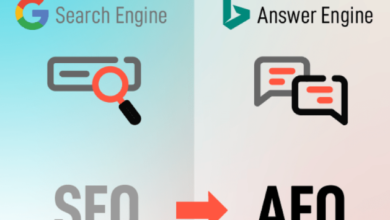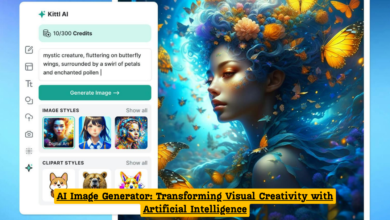Microsoft Names OpenAI as a Key Competitor in AI and Search
In a notable shift within the tech industry, Microsoft has officially recognized OpenAI as a major competitor in the realms of artificial intelligence (AI) and search. This development underscores the growing rivalry between two of the industry's most influential players and highlights the evolving landscape of AI technology and its impact on search engine dynamics.

Microsoft’s Strategic Positioning
Microsoft’s decision to list OpenAI as a key competitor reflects the significant strides OpenAI has made in advancing AI technologies. This move is part of Microsoft’s broader strategy to navigate the competitive landscape of AI and search.
1. Evolution of Microsoft’s AI Strategy
Microsoft has long been a major player in AI, with its Azure cloud platform and AI services playing a crucial role in its business strategy. By acknowledging OpenAI as a competitor, Microsoft signals a more competitive stance in the AI sector, particularly as OpenAI’s technologies continue to gain traction.
2. Impact on Microsoft’s Search Initiatives
Microsoft’s search engine, Bing, has been undergoing significant updates to incorporate advanced AI capabilities. The company’s recognition of OpenAI as a competitor highlights the direct impact of AI advancements on the search industry. As OpenAI’s models, such as GPT-4, influence search algorithms and user experiences, Microsoft aims to enhance its own search offerings to stay competitive.
OpenAI’s Rising Influence
OpenAI’s emergence as a significant competitor in AI and search is driven by its innovative technologies and contributions to the field.
1. Key Achievements of OpenAI
OpenAI has made substantial progress with its language models, including the highly acclaimed GPT-4. These models have set new standards in natural language processing (NLP), powering various applications from conversational agents to complex data analysis. OpenAI’s advancements have not only demonstrated the capabilities of AI but have also set a benchmark for competitors like Microsoft.
2. OpenAI’s Impact on Search Technologies
The integration of OpenAI’s models into search technologies has transformed the way users interact with search engines. By providing more nuanced and context-aware responses, OpenAI’s models enhance the overall search experience. This innovation puts pressure on companies like Microsoft to continually upgrade their search technologies to meet evolving user expectations.
Implications of the Competitive Landscape
The acknowledgment of OpenAI as a competitor has several implications for both companies and the broader tech industry.
1. Accelerated Innovation in AI
The competitive dynamic between Microsoft and OpenAI is likely to accelerate innovation in AI. As both companies strive to outpace each other, advancements in AI technologies are expected to progress rapidly. This competition will drive the development of more sophisticated models, leading to enhanced capabilities and applications across various sectors.
2. Enhanced User Experiences
The rivalry between Microsoft and OpenAI will likely benefit users by improving the quality and efficiency of AI-powered services. In the realm of search, for instance, users can expect more accurate, relevant, and contextually aware search results as both companies invest in refining their technologies.
3. Strategic Partnerships and Collaborations
The competitive landscape may also influence strategic partnerships and collaborations. Companies might seek alliances to leverage complementary strengths or gain access to advanced technologies. Such collaborations could lead to new innovations and expanded opportunities within the AI and search domains.
Microsoft and OpenAI: Future Outlook
The future of AI and search technologies will be significantly shaped by the ongoing competition between Microsoft and OpenAI.
1. Microsoft’s Future Plans
Microsoft is likely to continue enhancing its AI capabilities and search technologies to maintain a competitive edge. Investments in research and development, as well as potential acquisitions or partnerships, will play a key role in shaping Microsoft’s strategy. The company’s focus on integrating AI into its products and services will be crucial for its continued success in the competitive landscape.
2. OpenAI’s Path Forward
OpenAI will likely build on its achievements and push the boundaries of AI research and development. As the company continues to advance its models and technologies, it will aim to maintain its position as a leading innovator in the field. OpenAI’s focus on expanding the applications of its AI models will be critical for its future growth and influence.





